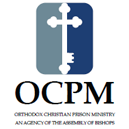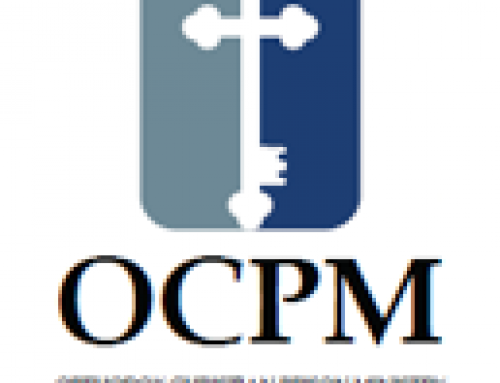This post was originally published on this site
For those of us living in freedom, it is all too easy to forget the more than two million men and women imprisoned in the US. Out of sight, out of mind. And yet, the United States has the highest prison population in the world. Chances are, you or someone you know has been touched by someone who has spent time behind bars.
Prisoners have spiritual needs like any individual. Chaplains and trained volunteers are contracted through each prison facility to provide spiritual care to the incarcerated. But there is no standardized system across America’s labyrinth of federal, state, and county correctional systems for how prisoners should be allowed to practice their religion.
Here are five facts about prison and religion that may surprise you.
- The Orthodox faith is not automatically recognized as a religious denomination by every correctional system across the United States. Federal and State correctional systems typically have a list of recognized religions. When a religion is recognized it affords prisoners of that faith certain rights. This recognition is crucial because without it, a priest may not be allowed to enter a facility in order to administer the Sacraments and the Services. Orthodox Christian Prison Ministry actively advocates for correctional facilities around the country to recognize Orthodoxy so that prisoners can practice their Faith.
- There are 2.3 million incarcerated men and women in the United States (698 per 100,000 residents per capita), more than any other nation in the world. While prisoners are often forgotten, odds are you or someone in your church community will have a relative who has spent time in prison. For families of those in prison, things are often kept quiet because of shame. OCPM ministers not only to the incarcerated but to the families of those in prison. We also assist churches that are trying to reintegrate a released prisoner into parish life.
- Because of the pandemic, chaplains, relatives, and volunteers have been prohibited from entering prisons across the country. According to the Marshall Project, “By Aprils, 20, at least 395,915 people in prison had tested positive for the illness, an increase of less than 1 percent from the week before.” For nearly a year, almost all prisons were in lockdown in order to prevent outbreaks. This meant that prisoners were stuck in their cells and could not receive spiritual care except through Zoom meetings or through correspondence. OCPM has a correspondence database of over 3,600 prisoners. On average, we send mail to a prisoner 120 times per year. That includes shipments of books, Bibles, icons, catechism courses, and letters written by our staff that personally speak to a prisoner’s situation. Never was OCPM’s Correspondence Ministry more crucial than during this pandemic.
- Not all mail can enter a prison facility due to the risk of contraband. Most of that contraband is street drugs that can be soaked or hidden into paper. On average, OCPM processes 92,000 pieces of mail in and out of prisons each year. But not just any mail can enter a jail or prison. There are stringent rules, unique to each facility that must be followed in order to gain and maintain access to those who are incarcerated. The books, icons, study courses, and Bible studies that OCPM publishes are specifically designed to adhere to strict prison guidelines.
- Most men in prison are young and have the majority of their lives ahead of them. An estimated 47% of sentenced prisoners are aged 25-39. Experts have found that it is those prisoners who make the most of their time in incarceration who are most likely to succeed on the outside. That can include taking courses, working towards a degree, and being involved with faith groups. Orthodox Christian Prison Ministry brings the unique teachings and traditions of the Orthodox Faith. Religion brings exposure to a value system compatible with success in reintegration. Orthodoxy is different in that it deals with life in the world as it is, not the ideal world of some other faiths or denominations.




